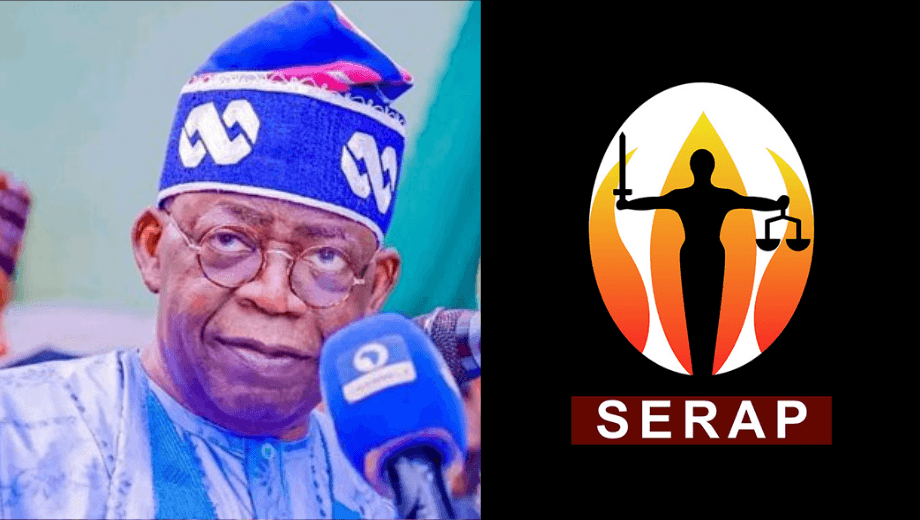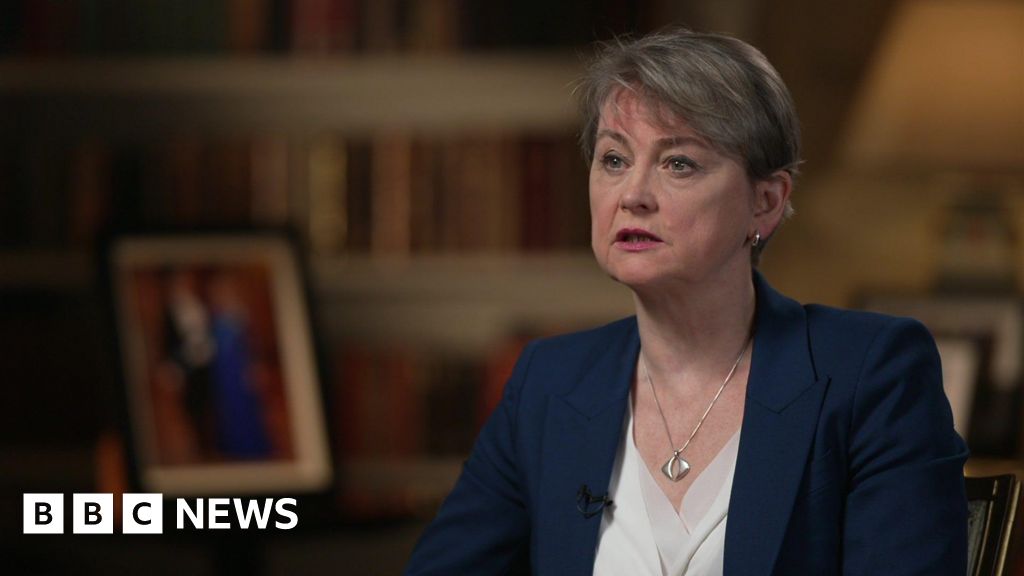 President Bola Ahmed Tinubu
President Bola Ahmed TinubuTinubu’s economic reforms in Nigeria, including the removal of the fuel subsidy and unification of exchange rates, aim to liberalise the economy, reduce government interference, and encourage private-sector growth. In some sense, Tinubu’s reforms are essentially like those of Thatcher, Deng, and even Yeltsin. But he differs from them in many respects, and this is not unexpected. For one, scholars of comparative studies agree that it is difficult, if not impossible, to find cases that are exactly similar or totally different. The contexts are not totally the same.
Since assumption of office on 29 May, 2023, President Bola Ahmed Tinubu has introduced several economic policies as part of a broader resolve to reform Nigeria’s economy for sustainable growth and enduring resilience. Key among these policies is the removal of subsidy on premium motor spirit and the unification of exchange rates. Though President Tinubu pronounced the end of petroleum subsidy in his inauguration speech on 29 May, 2023, there was no provision for subsidy in the 2023 Appropriation Act beyond June 2023. The merger of exchange rates on the other hand, was aimed at eliminating arbitrage, stabilising the value of the naira and attracting foreign investments.
These policies have no doubt affected the quality of lives of Nigerians in a negative way due to spiralling inflation, headlined by rising prices of food items, increases in energy costs and dwindling disposable income. While the President and his economic team have admitted the increasing cost of living and rising poverty levels, they have also repeatedly assured Nigerians of the inevitability and efficacy of the government’s policy choices and their potentials to yield positive outcomes in the foreseeable future. Despite these assurances, the government continues to receive backlashes that have been sign-posted by several protests under different appellations in the last few months. The main demand of these protests is the return of petroleum subsidy by the Federal Government, among others.
While it is true that citizens across all economic strata are feeling the pinch of the government’s reforms, the reality is that the Nigerian economy is long over-due for major surgical operations, as successive governments at the federal level have lacked either the courage or the conviction to take the difficult decisions that would have positioned the country for sustainable and inclusive economic growth. This may not be unconnected to the need for political correctness as against economic pragmatism. In other words, Nigeria has lived a lie for too long and the chicken has come home to roost. The nation’s economy is in intensive care and requiring of life-saving surgery – an unfortunately painful exercise that must be undertaken to stand a good chance of survival.
The situation in Nigeria is not peculiar as many countries have had to embark on painful economic reforms during difficult periods. The twentieth century history is replete with leaders who have transformed their nations’ economies through tough reforms that were initially painful but eventually beneficial. Some of these leaders include Margaret Thatcher (Britain), Den Xiaoping (China) and Boris Yeltsin (USSR/Russia). Are there any significant parallels between these leaders’ economic policies and those of Nigeria’s President Bola Tinubu? Did the citizens of those countries experience similar pains in the throes of economic reforms? Will Tinubu’s policies usher in economic growth and development as witnessed in the countries? Should Nigerians be hopeful of light at the end of this dark tunnel? Let us examine the economic reforms of these former leaders vis-à-vis President Tinubu’s reforms.
Margaret Thatcher (Britain)
Thatcher’s most famous legacy is her commitment to free market economics. During her time as UK Prime Minister (1979–1990), she implemented radical economic reforms that emphasised reducing the role of the state in the economy, promoting privatisation, cutting public spending and reducing the power of trade unions. As Paul Stepney noted, she came into office at a time when Britain “entered a period of sustained economic stagnation and industrial decline.” Her country’s traditional industries of iron and steel, coal, shipbuilding, and railways were at that time uncompetitive, and the welfare state bequeathed by previous administration became inefficient. Thatcher came into office in this context.
In some sense, the Tinubu administration’s inheritance in May 2023 is similar, if not worse than what Thatcher inherited. For example, it must be recalled that a year before Tinubu entered office, the National Bureau of Statistics (NBS) announced that a worrying 63 per cent of Nigerians, translating to over 130 million people, are poor. The education was in a comatose situation with government’s inability to meet promises to groups, including the Academic Staff Union of Universities (ASUU). The healthcare system was as challenged as the energy situation among other challenges. Yet, this is compounded by the ongoing violent conflicts in parts of the country.
Nigerians need credible journalism. Help us report it.
Support journalism driven by facts, created by Nigerians for Nigerians. Our thorough, researched reporting relies on the support of readers like you.
Help us maintain free and accessible news for all with a small donation.
Every contribution guarantees that we can keep delivering important stories —no paywalls, just quality journalism.
Confronted with her own context, Thatcher’s policies, often referred to as “Thatcherism,” aimed at reducing inflation and curbing the state’s involvement in economic management. Industries like telecommunications, gas, water, and electricity, previously controlled by the state, were sold off to private investors. This was done to improve efficiency, increase competition, and reduce the financial burden on the government. While Tinubu has not yet embarked on a sweeping privatisation campaign as Thatcher did, his removal of fuel subsidy is a step toward reducing government spending on public consumption. Unlike Thatcher whose reforms were marked by a strong market approach, the Tinubu’s reforms are laced with social policies for groups like students, traders, farmers, etc. Nonetheless, Tinubu’s broader vision, like those of Thatcher, involves encouraging the private sector to take a greater role in the economy, particularly in sectors like power, infrastructure, and agriculture.
Deng Xiaoping (China)
Deng’s reforms took place in a China that was transitioning from a strict, centrally planned economy under Mao Zedong’s Communist rule to a more open, market-oriented system. Deng recognised that China needed to open to the global economy to improve its growth prospects. His reform policies were driven by the need for modernisation in industry, agriculture, science, and defence, collectively known as the “Four Modernisations.” Deng introduced market elements into China’s socialist economy, allowing for private enterprise, foreign investments, and decentralised economic planning. His reforms were gradual, beginning with agriculture (the Household Responsibility System) that gave farmers incentives for higher productivity. Later reforms targeted industries, leading to the establishment of Special Economic Zones (SEZs) to attract foreign investment.
Local governments were given more autonomy in economic decision-making, enabling them to promote regional growth based on local conditions. Deng’s reforms were famously pragmatic. His mantra of “It doesn’t matter whether a cat is black or white, as long as it catches mice” encapsulates his approach. He was less concerned about ideological purity and more focused on results. Tinubu’s reforms on the other hand are grounded in a more liberal, market-oriented ideology. Nigeria’s reforms are driven by the need for economic diversification, fiscal prudence, and attracting foreign investment. His agenda reflects a capitalist outlook aimed at reducing state intervention in critical economic sectors and empowering private enterprises, although he operates within a democratic political framework, unlike Deng’s China. The recent Supreme Court’s resolution of the vexed issue of local government autonomy also aligns with Deng’s devolution of powers to local governments for the acceleration of development at the grassroots. Interestingly, for several years, many experts had advocated for local government autonomy as a panacea for grassroot development in Nigeria.
One issue that also aligns with Deng’s decentralised approach to development is Tinubu’s power sector reforms. The amendment of the Electricity Act breaks decades of Federal Government monopoly in the generation, transmission and distribution nationwide, allowing states and the private sector to more freely participate in the sector. Fast forward, states like Lagos have committed to investing in the sector. In early November, the Lagos State Government invited energy solution firms and independent power producers to bid for gas-fired power plants. Similar invitations are happening in other states. Meanwhile, since May 2023, although the national grid has severally broken down due to years of neglect, leading to the frustration of Nigerians, the power generation rose to a three-year high of 5,105 megawatts in August of this year, which was a 25 per cent increase. It must be recalled that many of the multinational companies leaving the country and local businesses had cited the power situation as a major challenge, in a situation that predated May 2023. It is expected that the deepening of the power sector reforms will fast-track the expansion of the country’s power generation, transmission, and distribution.
While Deng’s reforms in China lifted millions out of poverty, they also created stark regional inequalities, as coastal areas grew richer faster than inland regions, which led to social tensions. Deng’s reforms allowed economic liberalisation, but the Chinese Communist Party maintained strict political control. The challenge was to maintain this balance without encouraging political liberalisation. In Nigeria, the removal of fuel subsidies and foreign exchange reforms led to an immediate rise in inflation, causing significant hardship for ordinary Nigerians. Managing the political fallout and ensuring that reforms are inclusive remain a significant challenge. Indeed, politicians that initially supported the reforms being implemented by the Tinubu administration have either rephrased, repudiated, or rejected their pre-election stance. In a way, the development discourse in Nigeria has been politicised, creating a divisive bubble of deception for popular and political considerations. Corruption, weak institutions, and infrastructural deficits, meanwhile, pose major challenges to implementing and sustaining reforms in Nigeria. Tinubu’s government must strengthen these institutions to ensure that reforms succeed.
Deng’s reforms, nonetheless, led to China’s transformation into an economic superpower. A transformation often traced to his decisive stance, with the country witnessing unprecedented GDP growth, rapid industrialisation, and the lifting of hundreds of millions out of poverty. By opening to the world (and later embracing what is popularly referred to as “going global”), China became the “world’s factory” and shifted from an agrarian society to a manufacturing and export powerhouse. In the Nigerian case, it is too early to fully assess the outcomes of Tinubu’s reforms, as they are still in the early stages. But Nigeria shares some similarities with Deng’s China. For one, the Nigerian youth demography is well positioned to propel the country’s growth. Missing the unique opportunity and moment could haunt the country for years to come. Imagine Deng had been reluctant in his reforms – or the reforms had been truncated on the platter of politics and political correctness. Perhaps we will not know China as we know it today, the second largest economy after the United States. However, Tinubu’s policies are expected to reduce fiscal pressures and create a more stable macroeconomic environment, if successfully implemented. Also, his government will need to manage the immediate short-term effects – rising inflation and public discontent. It must be stressed, however, that Deng’s reforms were conducted in an authoritarian state, allowing for top-down control and limited dissenting voices. On the other hand, Tinubu’s reform is taking place in a democratic context, where public opinion and political pressures are immediate factors.
Boris Yeltsin (Russia)
Yeltsin, who was president between 1991 and 1999, took radical steps to transition Russia to a capitalist economy after the fall of the Soviet Union. His reforms, popularly referred to as “shock therapy,” liberalised prices, privatised state-owned enterprises, and dismantled state control over industries. These reforms were rapid and led to hyperinflation, inequality, and economic instability, but they moved Russia toward a lasting market economy. The extreme outcome of this administration was his prescribing the rapid and controversial privatisation of Russia’s state-owned assets. This created a class of oligarchs who accumulated vast wealth from former state enterprises, leading to deep inequality and concentration of wealth. His policies aimed at dismantling the remnants of the socialist economy and establishing a free market. In doing this, the Yeltsin administration created monopolies, rather than a competitive market system. The removal of petrol subsidy has similarly opened the sector to more competition than a continuation of the subsidy regime. Ultimately, importers will sell at prices that compete with those of the international market and local refineries.
Ultimately, the Tinubu reforms are confronted with the same two options that confronted Yeltsin. As the Columbia University scholar, Padma Desai, pointed out in an article entitled “Russian Retrospectives on Reforms from Yeltsin to Putin” written in 2005, the alternative option to Yeltsin’s shock therapy, characterised by “sweeping changes,” was to adopt “slow-paced reforms that wait for a political consensus.” This second option “can prolong the resulting costs and dislocations long after politics had turned ‘ordinary,’ giving opponents of reform a chance to regroup and counterattack — with the result that reforms may never actually occur.” In Nigeria, the removal of subsidy has been criticised for its timing, and the unification of exchange rates criticised for its trickle-down impact on the cost of imported and local items. Yet, there is no agreement as to what time is the best time to implement such necessary reforms. Not kicking the can down the road, the Tinubu administration took a difficult decision that previous government had either been reluctant to take or delayed. In other words, just as Yeltsin decisively announced the shock therapy in October of the year, he became Russia’s President, President Tinubu expressed his support for the end of the subsidy regime on the day of his inauguration in May 2023.
Conclusion
Tinubu’s economic reforms in Nigeria, including the removal of the fuel subsidy and unification of exchange rates, aim to liberalise the economy, reduce government interference, and encourage private-sector growth. In some sense, Tinubu’s reforms are essentially like those of Thatcher, Deng, and even Yeltsin. But he differs from them in many respects, and this is not unexpected. For one, scholars of comparative studies agree that it is difficult, if not impossible, to find cases that are exactly similar or totally different. The contexts are not totally the same. For example, it is noteworthy that while Thatcher was the third longest serving British Prime Minister, the Tinubu administration as at the time of writing has been in office for less than two years. In any case, the Nigerian democratic practice does not allow a President to be in office for more than two terms of four years each, if re-elected. The eight years in Nigeria is thus three years short of Thatcher’s 11 years in power. However, while the Nigerian context may not be exactly comparable to Thatcher’s Britain, Deng’s China, and Yeltsin’s Russia, the comparative analysis explored in this piece offered us an opportunity to reimagine the unfolding Tinubu reforms and its likely end.
Despite negative perceptions by some, Tinubu’s approach is more incremental than sweeping, perhaps, trying to balance economic restructuring with political stability. Unlike the ruthless reformer, his investment in social interventions through direct cash transfers, distribution of palliatives, introduction of students’ loan scheme, free vehicle conversion to condensed natural gas (CNG), consumer credit scheme, etcetera, are all geared towards alleviating the immediate impact of his policies on consumers. In this sense, Tinubu’s approach is far from a ruthless embrace of market transformation. Instead, he is more like a traditional welfarist confronted with dire situation that requires shock therapy, but he has sought to simultaneously administer crucial reforms alongside social interventions that can make the impact less painful.
Tinubu’s policies, though painful in the short run, have resulted in the attraction of over $30 billion in foreign direct investment into the country in the last fifteen months. The administration has also cleared foreign exchange backlog of over $7 billion to foreign airlines, a measure that has resulted in the return of Emirate Airlines to Nigeria and opening of low-fare portfolio to Nigerian travellers by foreign airlines. All these underscores a growing trust by the foreign investors in the Nigerian economy. Today, the country’s foreign reserve has jumped from $32.30 billion in May to $38.61 billion by the first week of October. It rose to over $40 billion in the first week of November, the highest in 33 months. Crude oil production is also being gradually ramped up through improvement in the fight against oil-theft. Daily crude production hit over 1.8 million barrels per day in October, up from 1.2 million bpd in May of the same year. At 39.84 per cent year-till-date (YtD) gain, the Nigerian stock market, in the first quarter of 2024, offered investors the second best return in Africa on the back of the economic reforms embarked upon by the President Bola Tinubu administration. All these are signs of economic recovery which need to be sustained for citizens to begin to feel the impact. Nigeria’s current situation may after all, be a case of ‘no pain, no gain’.
Ademola Oshodi, is the senior special assistant to the President on Protocol.
Support PREMIUM TIMES' journalism of integrity and credibility
At Premium Times, we firmly believe in the importance of high-quality journalism. Recognizing that not everyone can afford costly news subscriptions, we are dedicated to delivering meticulously researched, fact-checked news that remains freely accessible to all.
Whether you turn to Premium Times for daily updates, in-depth investigations into pressing national issues, or entertaining trending stories, we value your readership.
It’s essential to acknowledge that news production incurs expenses, and we take pride in never placing our stories behind a prohibitive paywall.
Would you consider supporting us with a modest contribution on a monthly basis to help maintain our commitment to free, accessible news?
TEXT AD: Call Willie - +2348098788999

















 English (US) ·
English (US) ·